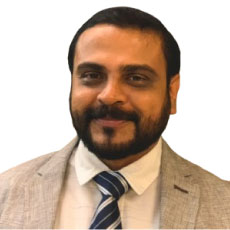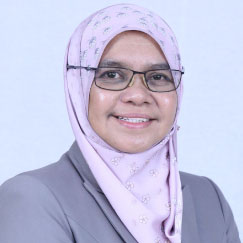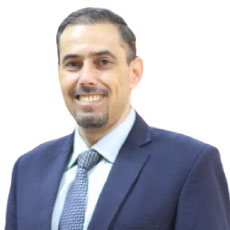PROGRAMME OVERVIEW
Day 1 - 21st September 2024
Registration Desk
National Anthem Of UAE
National Anthem of India
Welcome Speech by Moderator
Welcome Speech by Special Guest of Honor
Photography Session
Refreshment Break
Technical Session I
Lunch break
Technical Session II
Refreshment Break
Valedictory
Vote of Thanks
Day 2 22nd September 2024
Welcome Speech by Moderator
Speech by Exclusive Event Speaker
Technical Session 1 A
Technical Session 1 B
Lunch Break
Technical Session II A
Technical Session II B
Technical Session III A
Technical Session III B
Valedictory
Vote of thanks
Keynote Sepeakers

Mr. Sreenath G
HSS ProPick Technologies
Malaysia
Biogeography :
Mr. Sreenath G prolific career spanning over 2 decades into multifarious domains across various business models and verticals in the industry in global markets.Sreenath brings an infectious zeal and alacrity to his work. The core of his business and leadership skills is his passion towards "Innovation", "Digital Transformation Initiatives" & “The Processes and Policies" he builds and drives them to success. He has embraced the Technological advances and the transformation drive taking place around the world, quickly and put them to practice to help businesses and users embark on futuristic digital solutions. He played a significant role in managing the IT operations of various world class organizations. Sreenath is a reliable customer advocate and he has the ability to understand human resources and build better authentic customer relations through a clear and open communication model. He is credited with affecting growth in revenue because of his strategic business decision making and delivering improved Key Performance Indicators in every entrepreneurial venture under his leadership.During his professional journey, Sreenath has held crucial roles at Microsoft and GE. Certifications in Six Sigma, ITIL, and MOF detail his commitment towards Technical Processes, Optimization and standardization. Leadership and People Management programs enhanced his skills as a charismatic and strategic leader, an able negotiator, and an innovative thinker who can communicate ground-breaking ideas and processes effectively.

Dr. Abdel-Karim AI-Tamimi
Sheffield Hallam University
United Kingdom
Biogeography :
Dr. Abdel-Karim AI-Tamimi I began with a fascination for technology at Washington University in St. Louis, earning my master's and PhD under Prof. Raj Jain. Currently, I'm a Senior Lecturer at Sheffield Hallam University, leading the Interactive Data Analytics Group (iDAG) and the Conversational AI Research Cluster (CAIRC), and contributing to the Applied Software Engineering Group (ASERG). As a Senior Fellow of the Higher Education Academy (SFHEA), I am dedicated to digital teaching excellence. My career includes leadership roles at Higher Technology Colleges (HCT) in the UAE and founding the Entrepreneurship and Innovation Center (EIC) at Yarmouk University in Jordan. I focus on Machine Learning, Cyber Security, Multimedia Networking, and IoT, bridging academia and industry. Co-founding startups like Phyllis chatbot exemplifies my drive for practical solutions. I've received numerous grants for applied research, leading EU and UK-funded projects like Innovate-UK, CyberASAP, and DFG, advancing technology for global betterment. I believe in technology and education's power to transform our world. Let's connect to explore collaborations in technology and education. Your insights fuel innovation.

Dr. Padam Kafle
Aster Digital Health
Dubai
Biogeography :
Dr. Padam Kafle I am a seasoned healthcare IT leader and innovator with over 21 years of experience in the field. I hold a Master of Business Administration in Innovation and Change from University of Liverpool, UK, and I am currently pursuing a Doctorate in Business Administration from ESC Clermont Business School, France.As the Head of IT and Automation at Aster Hospitals UAE and Oman, I oversee the IT operations and strategy across 14 facilities, implementing and integrating cutting-edge technologies such as Artificial Intelligence, Artificial General intelligence in healthcare, Internet of Things, Robotic Process Automation, Big Data, and Robotics. I have successfully achieved HIMSS Level 6 validation for two of our hospitals in 18 months, enhancing patient care and operational efficiency. I am also leading the development and deployment of generative AI engineering and Internet of Medical Things applications, creating new possibilities and value in healthcare.My mission is to foster a culture of innovation and collaboration in the healthcare sector, and to contribute to the advancement and adoption of digital healthcare and holographic healthcare technologies. I am always open to connecting with like-minded professionals and organizations who share my vision and passion for transforming the future of healthcare. Feel free to reach out to me on LinkedIn to explore how we can make a positive impact together.

Mr. Ram Jalan
Digital Transformation, DAMAC Properties
Dubai
Biogeography :
Mr. Ram Jalan As a seasoned leader in Digital Transformation, I specialize in integrating AI, Martech, and Customer Experience Design into core business operations. With over 19 years of experience, I have held key roles at prestigious firms such as DAMAC Group and CanaraHSBC Life Insurance, where I led significant digital overhauls and enhanced customer journeys. My expertise includes directing digital innovation initiatives, managing high-performing teams, and implementing advanced marketing technologies like Salesforce Marketing Cloud and Adobe Marketing Cloud. Notable achievements include doubling the Return on Ad Spend (ROAS) at CanaraHSBC in just 8 weeks and co-founding DINTW, recognized among India's Top 10 Martech companies. My professional goal is to harness AI and digital strategies to drive organizational growth and foster a culture of innovation.
Session Sepeakers

Mr. Amith Ashokan
Aysdev Global Consultancy LLP, India.
Biogeography :
Mr. Amith Ashokan a Director and Managing Partner, I have over 20 years of experience in business development, management, and IT consulting. I am passionate about enabling leaders to achieve their goals and transform their organizations by providing innovative and impactful solutions across various business verticals.I leverage my cross-domain expertise, digital marketing skills, and knowledge of artificial intelligence, data science, and machine learning to deliver value to my clients. I also mentor and coach aspiring entrepreneurs, professionals, and students on leadership, business management, and technology. I am a certified professional in Microsoft, IBM, SAFe, and a researcher. I am committed to lifelong learning and continuous improvement.

Mr. Mohamed Harun Abd Jabbar
USIM Tijarah Holdings Sdn Bhd
Malaysia.
Biogeography :
Mr.Mohamed Harun Abd Jabbar I am currently authoring Two (2) technical papers on i) Artifical Intelligence for the Telecommunications Sector and ii) Artifical Intelligence and Blockchain for the Healthcare sector. These are the sub-modules of my research / dissertation on the Convergence of Artificial Narrow Intelligence (ANI) with Artificial General Intelligence (AGI), which will include AI adoption strategies and it's future roadmap for both the Public and Private sectors. Another sub-module on Digital Transformation and Artificial Intelligence for the Public Sector will be developed soon as part of my main dissertation. I co-developed the Consolidated Strategy on INDUSTRY 4.0 / DIGITAL TRANSFORMATION FOR SOCIETY for the ASEAN Secretariat that comprises Malaysia, Singapore, Indonesia, Philippines, Thailand, Brunei, Laos, Cambodia, Vietnam and Myanmar.This involves the development of strategic and standardized implementation plans of Key Enablers ie Capability and Capacity Building, Stakeholders Cooperation and Effective Monitoring of IR4.0 / Digital Transformation and Artificial Intelligence initiatives for all ASEAN Member States.A highly motivated Strategic Leader with vast experience in the Government and Corporate sectors. Specializes in Digital Transformation, Artifical Intelligence, Portfolio/Program Management, Operations Management and Organization Transformation.

Mr.Colin Christie
Navix Health Inc
Philippines
Biogeography :
Mr.Colin Christie With a robust background in Digital Transformation and leadership, I have co-founded and led numerous organizations to success. As Co-Founder and Chairman of Navix Health Inc. and past president of the Analytics and Artificial Intelligence Association of the Philippines, I have driven innovative initiatives. I served as Executive Director of Global Chamber® Manila and co-founded the Health Information Management Association of the Philippines. My board experience spans both private and public sectors, including Lifetrack Medical Systems, Medcode, Navix Health, MxSecure Inc., NOW Corporation, and Medinex. As Founder/CEO of MxSecure, Inc., a pioneer in the Philippines BPO sector, I earned multiple accolades, including the INC 5000 Fastest Growing Companies for four successive years and recognition in Entrepreneur Magazine's "100 Most Brilliant Companies." Additionally, I have been featured on Bloomberg and ANC and have delivered keynotes at over 30 business and education conferences.

Dr. Zainab Rasheed
CEO of Zennova Technology
Dubai, UAE.
Biogeography :
Dr. Zainab Rasheed is a prominent figure in the field of biogeography, renowned for her contributions to understanding the distribution of species and ecosystems across geographic space. With a focus on biodiversity patterns and ecological processes, Dr. Rasheed's research delves into the intricate relationships between organisms and their environments. Through her work, she sheds light on the factors shaping the distribution of life on Earth, from historical biogeography to contemporary ecological dynamics. Dr. Rasheed's expertise and insights have significantly advanced our understanding of the complex interactions between geography, climate, and biology, making her a respected authority in the field of biogeography.

Dr. Arvin R. De La Cruz
Program Chair of the MS Computer Engineering Program
Polytechnic University, Philipines
Biogeography :
Dr. Arvin Roxas De La Cruz Practice IT Profession through development of different software in the ICT industry from system to web development.Serves as Academic head from different schools, consultant of different schools for permit to operate and recognition of ICT, Business, Engineering and TESDA courses, assistance in ICT organizations’ affiliations. Member in International Society for Technology in Education (ISTE). Academician for the past years since 1996 from different schools from vocational to tertiary courses Finished a post graduate degree courses in Doctor of Philosophy in Management (PhD in Mgt),Master of Science in Management Engineering (MS ManE) and Master in Information Technology (MIT).Recognized and affiliated by JEDI (Java Education & Development Initiative) to be one of the JEDI Champion and Trainer in Java programming, Solaris, Web Programming & Mobile Programming for Instructional purposes. JEDI is a under the SUN Microsystems Inc.Serves as speaker or trainer to different ICT and Business Seminars & Trainings.Serves as one of the Online Judge in the ThinkQuest International Competition 2011 from May 16 – 27, 2011by ORACLE Foundation. Evaluating of software projects in the three areas namely ThinkQuest Projects Event, Digital Media Event and Application Development Event.

Mr. Ambesh Tiwari
BDA Technologies Private Limited
India
Biogeography :
Dr.Ambesh Tiwari is deeply passionate about AI and its transformative potential, especially in the GenAI applications. With over a decade dedicated to growth consulting, He has been at the forefront of innovation and transformation, guiding and collaborating with businesses across various sectors. He blends engineering know-how with keen marketing insights.Rather than resting on his achievements, Ambesh continually seeks ways to make AI tools accessible and beneficial for businesses of all sizes. His commitment has been instrumental in helping many organizations enhance their productivity, but for Ambesh, the journey of learning and sharing never stops.Currently, he is building StartupAccel, where he leads training and mentorship clients across service industries. He also runs his own company, BDA Technologies Private Limited, which offers a range of extensive digital services like web development, Social media marketing, Facebook ads & Funnel Development to maximize client profitability.In addition, he is a podcast host at "INSPIRE with Ambesh", where he share his insights and experiences on marketing, technology, and entrepreneurship along with Industry leaders.

Ms. Cindy Ball
Fierce Inc
United States.
Biogeography :
Ms. Cindy Ball As a seasoned leader in product management and emerging technologies, I possess a deep passion for leveraging immersive technologies to revolutionize workplaces, classrooms, healthcare, and communities. With a proven track record of success, I excel in building and managing product roadmaps, fostering strategic partnerships, and leading multidisciplinary teams to deliver groundbreaking products and programs. Highlights of my career include spearheading research projects across diverse domains, launching Microsoft Professional in partnership with EdX, managing a multimillion-dollar portfolio for Meta XR Programs, and launching a children's MMO game for Upper Deck within a tight timeline. Additionally, I have a strong background in production management, with experience working with prestigious clients such as Microsoft, Disney, and Sony. My technical fluency and ability to communicate complex concepts to diverse audiences make me a valuable asset in driving innovation and product excellence.

Dr. Balasubramani R
NMAM Institute of Technology
India
Biogeography :
Dr. Balasubramani his BE in Electronics and Communication from Madurai Kamaraj University in 1990 and M.Tech in Information Technology from AAI-Deemed University, Allahabad in 2005. He obtained his Ph.D., in Information Technology from Vinayaka Missions University, Salem in 2011 for his research in the area of Digital Image Processing.Dr. Balasubramani is having 27 years of professional experience (12 years in industry
Technical Session
Paper Title : Intelligent Cart Companion

Vikas J. Nandeshwar
Abstract:
The project represents a paradigm shift in the retail experience by introducing an intelligent and automated shopping cart. This groundbreaking system incorporates a white gear DC motor, castor wheel, and an Arduino microcontroller equipped with Bluetooth 4.0 capabilities. Advanced features, including color vision, line tracing facilitated by an IR sensor array, and human-following technology, redefine the conventional shopping paradigm. The integration of a precise L293D motor driver circuit ensures seamless control over the trolley's movements. This project aims to enhance user convenience, streamline navigation, and create a responsive and adaptable shopping companion. The Smart Shopping Trolley signifies a fusion of mechanical prowess and cutting-edge electronics, marking a significant step towards the future of automated retail experiences.
Keywords: Arduino, Bluetooth, DC Motor, IR Sensor, L293D Motor driver
Paper Title : Automating Tomorrow: The Convergence of AI and Robotics

GAYATHRI DILI
Abstract:
The distinction between AI—the capacity of machines to simulate human thought—and robots—traditionally programmed devices—is becoming increasingly hazy. This study examines this fascinating convergence, in which artificial intelligence (AI) gives robots more freedom and flexibility. We explore how artificial intelligence subfields—such as computer vision for object detection, machine learning for navigation, and natural language processing for communication—are reshaping robots. This gives rise to a new class of intelligent robots: autonomous mobility robots navigating warehouses, collaborative robots working alongside humans, service robots helping in healthcare and customer service, and industrial robots completing complex tasks with greater precision. These developments in a range of businesses will be demonstrated through case studies. Intelligent robots have enormous potential to change our future, from manufacturing to healthcare and agriculture.
Keywords: Arduino, Bluetooth, DC Motor, IR Sensor, L293D Motor driver
Paper Title : Results-based Monitoring of a Localized Project Intervention using Agile: Indicators for Short and Long-term Development Program Goals Phase 1

Analiza Acuña-Villacorte
Abstract:
The study aims to describe the performance of the research-based extension project of the BulSU CAL Department of English as a basis for the university's short and long-term development goals in research and extension. The proposed extension program focuses on capacitating teachers to write classroom-based research. Four indicators have been established to assess project impact: measurability, management, interactivity, and needs analysis. To ensure meaningful participation in the program, the study also sought to reveal gender and age variation across the indicators. Data were obtained from the 27 target recipients from a public national high school in Bulakan, Bulacan. This paper highlights that the proposed capacity program must be needs- based and participatory and promote a joint learning process. Significant gender differences were revealed in the following areas: management, interactivity, and needs analysis, while no age differences were found in all indicators.
Keywords: Results-based monitoring, Localized project intervention, Classroom-based research, Research-based extension, Participatory approach program, Needs-based capacity projects
Paper Title : Navigating the AI Revolution: Challenges and Opportunities in Global Economics

Silvia Rahmita
Abstract:
Artificial Intelligence (AI) is revolutionizing global economics, presenting both opportunities and challenges for businesses. This paper examines the profound impacts and difficulties associated with AI adoption in the global economic landscape. AI offers immense potential to enhance efficiency, competitiveness, and economic growth, particularly during crises like the COVID-19 pandemic. However, it also introduces significant challenges in data quality and privacy, ethical considerations, workforce transformation, regulatory frameworks, and competitive dynamics. Ensuring data integrity and privacy, addressing ethical issues such as transparency and bias, and managing workforce displacement are critical. Additionally, proactive engagement with regulatory bodies and fostering a culture of responsible AI adoption are essential for sustainable integration. The paper concludes with strategies and best practices for organizations to navigate these complexities, emphasizing proactive data management, ethical frameworks, regulatory collaboration, workforce development, and a responsible AI culture. By addressing these challenges, businesses can harness AI's full potential, driving sustainable growth and innovation in the global economy.
Paper Title : Feeding the Future: AI’s Transformative Impact on Livestock Farming and Global Food Security

Bima Bagaskara S.Pt
Abstract:
Food security in developing countries is a multifaceted challenge intensified by climate change, population growth, and resource depletion. Integrating Artificial Intelligence (AI) into the livestock sector presents a promising avenue to enhance food security. AI technologies can optimize various aspects of livestock management, including health monitoring, breeding practices, and feed optimization. This paper reviews the current state of AI applications in livestock management, examining recent advancements and the barriers to AI adoption in the livestock sector. Key opportunities include optimizing livestock management, improving disease detection, optimizing breeding, and enhancing feed and nutrition management. Conversely, challenges encompass the high cost of AI technologies, limited technical expertise, and infrastructural deficits. This paper explores AI's potential to mitigate climate change and resource depletion impacts on livestock farming, enhancing food security in developing countries. By improving productivity, reducing disease and mortality, and optimizing resource use, AI technologies contribute to a stable and reliable food supply. Future research should develop scalable AI solutions tailored to the diverse conditions of developing countries, ensuring benefits for all farmers and contributing to global food security.
Keywords: Artificial Intelligence, Livestock Farming, Food Security, Developing Country
Paper Title : AI BASED DESKTOP ASSISTANT FOR VISUALLY IMPAIRED PERSON

Deepak Baghel
Abstract:
The purposed study shows the development of an artificial intelligence-based desktop assistant designed to increase accessibility for the visually impaired. This study aims to solve the problems visually impaired users encounter while accessing and navigating platforms. It focuses on providing a comfortable and efficient experience, inspired by successful applications such as desktop assistant, email and personal voice assistant. Similar to the voice assistant concept, our desktop assistant is designed to perform tasks and provide various services based on the user's voice commands. Synchronization techniques include speech recognition used to translate commands and responses through voice communication, allowing visually impaired users to work, manage tasks, and interact with content. The goal is to make computer communication easier, especially for people who have trouble using traditional input such as the keyboard. Combining features such as document creation, web browsing and computer tasks, our artificial intelligence-powered desktop assistant aims to revolutionize digital access and production for visually impaired users. The goal is to take an important step towards empowering the visually impaired in the digital age by creating a more inclusive and user-friendly environment.
Keywords: Voice Assistant, Desktop Assistant, Visually Impaired, Intelligent Voice Assistant, Personal Computer Automation.
Paper Title : AI Platforms for Legal Advice: Ethical challenges and risks

Dr. Kais Nasser
Abstract:
Lawyer should provide competent representation to his client and act with reasonable diligence and promptness in representing a client. He also shall not knowingly reveal confidential information. Meanwhile, more and more law firms are using AI platforms, like ChatGPT or other AI software, to enhance their legal work. However, usage of AI platforms sets serious risks and challenges for the ethical duties of a lawyer. One of the dominant issues is the validity of data that AI affords. Although these AI outputs look apparently professional and true, these outputs are not produced by human nor by legal expert, and its purpose is not actually to afford legal information. Therefore, output of AI might be misleading, biased, discriminative and old. In such circumstances a lawyer might contradict his ethical duty of loyalty Diligence. Another issue is the privacy of client. A lawyer is obliged to keep the data he exchanges with a client privileged. Yet, AI saves the data, question, or document we upload. It even uses this data repeatedly to improve its system. Thus, client information might become integral part of AI model, and lawyer might be differing the lawyer-client privilege. These risks and challenges that stems from involving AI in legal work are engaging various Bar Associations all over the world that are trying re-draw the ethical lines and instruct lawyers how to use AI carefully and ethically. The proposed paper aims to deal with this item.
Paper Title : Business Management Strategy Based on AI to Build Opportunities with the 'Kulino' Approach in the Indonesian Industry

Yonardo Adiwira Utama
Abstract:
Examining the kulino approach to artificial intelligence (AI)-based business management strategy across industries in Indonesia. The research aims at examining AI- based business management strategies using a kulino approach and also to understand how this can be helpful to Indonesian companies in utilizing AI technologies effectively. This research methodology adopts the qualitative techniques in exploring how AI-based business management strategies can create opportunities with the ‘kulino’ approach within Indonesian industries. The obtained results concerning artificial intelligence (AI) based company management methods using “kulino” approach within Indonesian businesses showed that AI adoption can bring operational efficiency and improve customer service quality. These benefits depend on following a particular way of doing things, as set out in the Kulino Framework. Employing automation tools, that are now accessible for most businesses, allows them to make more decisions faster, entrust repetitive tasks for robots and provide better services making this technology indispensable. Nonetheless, chatbots allow organizations offer enhanced operational services as well as deliver personalized experiences to their customers compared to human beings through automation of several activities. According to the findings, greater efficiency could be attained by adopting “kulino”. For instance, AI has helped automate things such as decision-making, data analysis or chatting with customers through chat-bots which earlier depended on humans’ involvement only. The 'kulino' approach enables companies to integrate AI consistently into operations, thereby creating positive habits in using this technology. This positively impacts productivity and service quality and opens up opportunities for new product and service innovations.
Paper Title : The Impact of Artificial Intelligence on Financial Ratios Indicating Financial Distress: Evidence from NYSE-Listed Companies

Sana Ramzan
Abstract:
This study investigates the impact of artificial intelligence (AI) adoption on key financial ratios indicative of financial distress among 2000 companies listed on the New York Stock Exchange (NYSE) for the years 2022 and 2023. AI adoption and financial ratios like the Debt-to-Equity Ratio, Current Ratio, and Return on Assets (ROA) are examined using regression and correlation analysis to determine how AI affects corporate financial health. The findings reveal that AI adoption is associated with a significant reduction in the Debt-to-Equity Ratio, improved liquidity through a higher Current Ratio, and increased profitability through ROA. These findings suggest that AI-adopting organizations may better manage financial leverage, liquidity, and asset utilization. The research contributes to the literature on AI's role in financial performance and informs investors, creditors, and regulators about AI's strategic advantages in mitigating financial distress.
Paper Title : Leveraging Artificial Intelligence to Improve Programming Education: Techniques, Applications, and Future Directions

Noor Al-Attar
Abstract:
Including artificial intelligence (AI) in educational frameworks offers great possibilities, especially for improving students' programming skills. Programming is critical for innovation and economic growth, and AI-powered solutions offer personalized, dynamic learning experiences tailored to individual capabilities. These technologies provide immediate feedback, identify learning gaps, and provide customized activities to improve comprehension. This paper reviews the significant impact of AI in programming education, discussing key techniques, applications, and current studies. It highlights how AI can optimize learning effectiveness, proposing future directions that should aim to refine AI tools, validate their efficacy across diverse educational contexts, and ensure they complement traditional teaching methods. By leveraging AI responsibly, programming education may grow to match the demands of a quickly evolving digital landscape, providing students with critical skills for future success.
Paper Title : BLOCKCHAIN BASED LAND REGISTRATION SYSTEM USING SHA -512 ALGORITHM

PRIYADHARSHINI K
Abstract:
Land registration is a cornerstone of property rights, security, and economic development, yet traditional systems are often plagued by inefficiency, fraud, and a lack of transparency. In response to these challenges, this abstract introduces a blockchain-based land registration system employing the SHA-512 algorithm. This innovative solution leverages the cryptographic strength of SHA-512 to enhance the security and integrity of land records while fostering trust, transparency, and efficiency in the registration process. With immutable and tamper-resistant records, streamlined transactions, and an inclusive approach to cross-border property ownership, this system promises to revolutionize land administration, protect property rights, and promote economic growth on a global scale. The blockchain-based land registration system offers a promising vision of a future where secure property ownership is accessible to all, underpinned by cuttingedge technology and the robustness of SHA-512 cryptographic hashing
Paper Title : Investigation into the Factors Affecting the Integration of AI in HRM within Jordanian Banks

Suha Said Abdelaziz Khanfar
Abstract:
This study investigates the factors that affect the integration of artificial intelligence (AI) into human resources management (HRM) within Jordanian banks, a sector that does not adopt AI widely. This study employs a mixed methodology that includes both qualitative and quantitative approaches, the research consists of a sample of 130 HR directors and other stakeholders from seven commercial banks in Jordan. The main data-gathering instruments were questionnaires and interviews programmed to meet the research objectives and to confirm the research hypotheses. The major findings indicate that there are some substantial barriers and challenges that prevent AI’s integration into the HRM in Jordanian banks. Such barriers include a lack of knowledge, poor skillful personnel, employee resistance to change, and privacy and security concerns about data. Despite many challenges such as high costs of AI implementation, and difficulties in AI implementation, and regulatory & compliance issues the study demonstrates that AI can positively affect HRM by enhancing talent acquisition, automating routine tasks, and other HR functions. According to the experimental validation of our proposition, AI can be used in HRM to improve productivity and reduce time wastage on administrative tasks with enough provision of financial and material resources. It concludes by giving practical advice on how the given barriers and challenges may be overcome and how AI could be optimally employed to boost HRM services in Jordan’s banking sector. If these barriers and challenges are addressed and the potential benefits of its implementation are showcased, then banks can enhance their HRM practices which will eventually lead to improved organizational performance as well as competitiveness.
Keywords: Artificial Intelligence (AI), Human Resources Management (HRM), Commercial Banks, Jordan.






